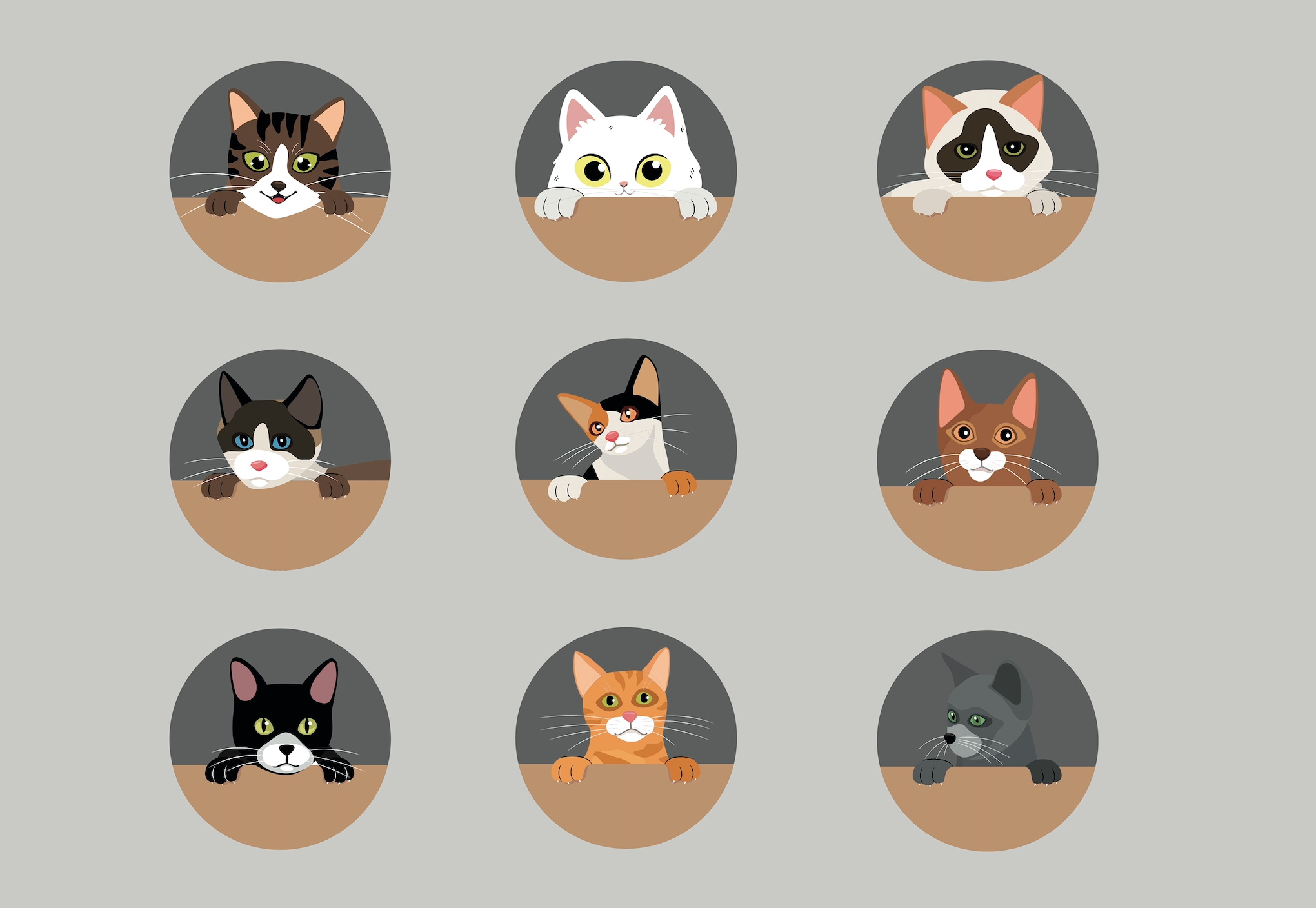Your cart is empty. Let's fix that!


Ever looked at your Myers-Briggs test results and thought, “I wonder what my cat would be?” If that’s you, we have good news—there’s a science-backed cat personality test that you can do right now.
Although we’ve been cats’ biggest fans since ancient Egyptian times, analyzing their personalities has historically proven difficult. Most available information offers broad generalizations about how different cat breeds act, which are often inaccurate and doesn’t account for the domestic short-haired cat (A.K.A the mutts of the cat world) which make up 95% of the cat population in the United States.
While wild cats have been starring in nature documentaries for decades, household cats have only started to get the same treatment in recent years. Most research on domestic cats has been done in controlled laboratories, shelters with plenty of cats on hand, or easily accessible feral cat colonies—none of which are environments where pet cats show comfortable, natural behaviors.
Although all that research is valuable, it leaves a considerable gap in the literature: the personality of the household cat. It’s difficult to perform a scientific study across multiple homes to capture all of their cats’ behaviors—and the solution one team found is to let cat owners collect data on their cat personalities.
If you’re a personality test aficionado (and who hasn’t been sucked into a quiz that tells you what type of potato you would be?), you might be familiar with the Big Five Personality Traits. It’s a system that scores people on how strongly they associate with five common personality traits. A team of researchers in South Australia and New Zealand made a breakthrough when they applied the same concept to cats.
They created the Feline Five: a set of five cat personality traits that each and every cat can be scored on. The test is inspired by the Big Five, but the Feline Five is adapted to better match cat behaviors and personality types. What this provided was a system that allowed pet owners to score a whopping 2,802 pet cats on these traits, offering a bigger pool of data on domestic cat personalities than ever before.
Every cat receives a score for each of these traits, providing a unique combination of all five. They are:
Cats who are highly neurotic would be more commonly described as “anxious” or “high-strung.” They tend to be insecure and shy and are cautious of new people and things. They’re quick to hide and all your friends probably know them as nothing more than a pair of eyes under the bed.
They’ll benefit from having places they feel safe—cat trees and hideaways and even a covered litter box can help. Once they become comfortable in their environment, they’re likely to gain confidence and come out of their shell a little bit.
Highly extraverted cats take the stereotype of the “curious cat” to the next level. They’re always looking for engagement and stimulation. They’re uber nosy and want to investigate everything and everyone in their territory.
Extraverted cats can get bored easily and can turn to destructive behaviors if they’re not entertained. If you want to avoid cat scratches on, well, everything, these cats will benefit from having a wealth of engaging toys and lots of playtime with you or other pets to keep them busy and happy.
Cats with high dominance scores want to be the top dog (er, cat) in their household. They can be territorial and think everyone should understand that their toys, food, and even people are allllll theirs.
Dominant cats tend to do better in solo cat households, but can live with other pets as long as you make sure that each pet has one of everything—separate food and water bowls, separate toys, and separate litter trays. It can also help to keep these cats indoors, as dominant outdoor cats are prone to getting into scrapes protecting their turf.
Highly impulsive cats are quick to react to almost everything. They don’t want to wait and think through something, they want to act now! That might mean running for the hills when they hear an unfamiliar sound on TV or leaping from the top of the refrigerator without a second thought.
Impulsive cats are typically high in both energy and anxiety, and they need a calming influence to balance their instincts. They thrive with steady routines that allow them to feel prepared for exactly what comes next, helping them move through the world with a little more chill.
Everyone loves a highly agreeable cat! These are the friendly cats that will trot up to every new arrival at their door with their tail high and greet them with a head bonk as they beg for pets. They are the ideal cats to live in a multi–cat household since they’re more interested in cuddling than causing drama.
Adult cats are more likely to be agreeable when they are well-socialized as kittens, but a poorly-socialized cat or kitten isn’t guaranteed to be unfriendly for life. Socialization with people, pets, and other stimuli are key for developing agreeableness. While it’s most impactful for kittens, it can still help older cats to become more friendly as time goes on.
This data is useful for more than just entertainment. Understanding your cat’s personality traits helps you to understand how they interact with the world around them. When cats seem irritable, for example, a cat that scores highly on impulsiveness is likely stressed about something in their environment, while a cat that scores low on agreeability might actually be showing that they’re in pain. Understanding their unique ways of expressing their needs can be instrumental in meeting them and helping your cat to thrive.
The research team also has high hopes that the Feline Five system might help to make more successful matches between shelter cats and adopters. Knowing how a cat scores on the Feline Five could help to match them to the right household (e.g. highly dominant cats might not do well in a multi-cat household) and the right owner (e.g. an extroverted human and extroverted cat could match each others energies, while a cat with low neuroticism might be comforting for a highly neurotic person).
Want to score your cat’s Feline Five? You can take the same test the research team used to score their subjects! You’ll come out of the survey understanding your pet even better—and don’t forget to reward your test subject.